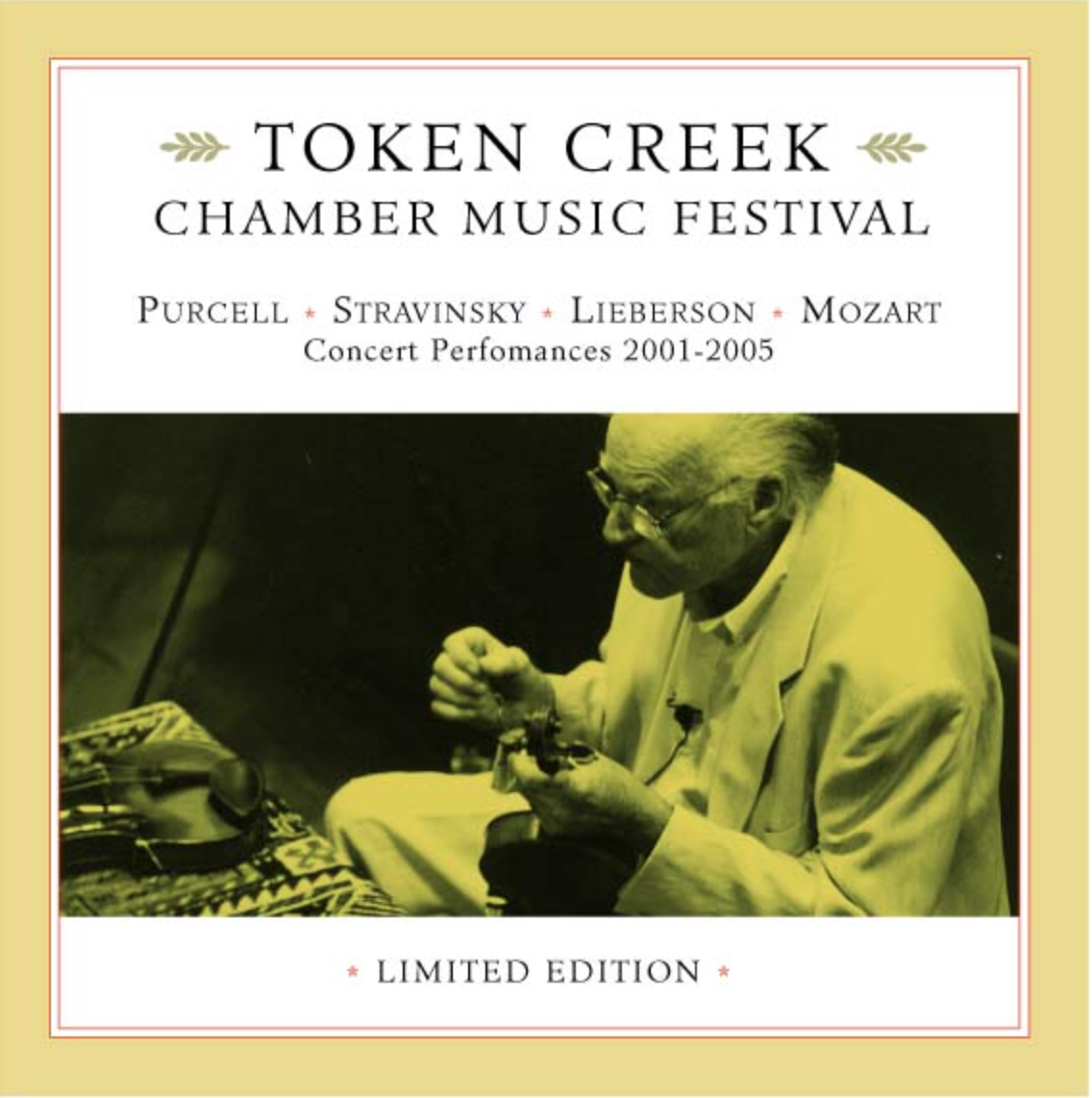TCF 2020 Virtual Season · Music from the Barn
A Vocal Recital (I)
Program
Rilke Songs (Rainer Maria Rilke) (2001) Peter Lieberson (1946-2011) 1. O ihr Zärtlichen 2. Atmen, du unsichtbares Gedicht! 3. Wolle die Wandlung 4. Blumenmuskel, der der Anemone 5. Stiller Freund- Krista River, soprano
- Judith Gordon, piano
- from the 2005 Token Creek Festival
- Sarah Yanovitch, soprano
- James Primosch, piano
- from the 2018 Token Creek Festival
- Lucy Fitz Gibbon, soprano
- Ryan McCullough, piano
- from the 2015 Token Creek Festival
- Janice Felty, mezzo-soprano
- Craig Smith, piano
- from the 2000 Token Creek Festival
- Simon Barrad, baritone
- John Harbison, piano
- from the 2019 Token Creek Festival
- Lorraine Hunt (Lieberson), mezzo-soprano
- Steven Blier, piano
- from the 1995 Token Creek Festival
Program Notes
Unmatched for its communicative power, music for voice and piano, or voice and chamber ensemble, is one of the anchors of the Token Creek Festival, playing a starring role in almost every concert season, from songs of Henry Purcell through music of present day composers. Stemming from an abiding interest in text — whether words from Bach cantatas, classical poets, or modern-day writers — Token Creek has several times hosted forums exploring the complex and intimate relationship between words and music.
Peter Lieberson’s Rilke Songs were written for his wife Lorraine Hunt Lieberson, who gave their first performance on July 18, 2001 with Judith Gordon in Santa Fe, NM. Like many of Peter Lieberson’s recent pieces, these songs are a testament to his devotion to his wife, and to his on-going commitment to generous, sensuous, and structurally integrated composition. Rilke’s density has often been elusive for composers. Here the responses to the poems are direct and immediately perceptible. An excellent recording of the piece, by Lorraine Hunt Lieberson and Peter Serkin, already exists; we believe this live performance presages the wide adoption of these beautiful songs by many recital duos.
James Primosch is a composer of vocal music of every kind: lieder, cantata, motet, and large-scale oratorio. Like the best vocal composers, he finds the texts that will stretch and challenge him, hence his long and fruitful association with Susan Stewart, a major poet who has on occasion written texts especially for his setting, and whose very concise and vivid poems match in every way the composer’s vocal imagination. All composers of vocal music know when they have words which take them to the right places, and Primosch’s compositional journey has found, over and over, the right partners. “For Cinder,” wrote Tom Purdom (Broad Street Review), Primosch “began with a well-chosen poem by a poet named Susan Stewart. Its subject is the symbiosis of opposites, starting with the flame we use to make the tong that protects us from the flame. It’s a simple, tender poem that’s loaded with significance, and Primosch gave it the simple, tender musical setting it deserved.”
Poet Sara Teasdale’s (1884-1933) work has always been characterized by its simplicity and clarity, her use of classical forms, and her passionate and romantic subject matter in poetry of delicacy and subtlety. Dedicated to the performers on this recital, Lucy Fitz Gibbon and Ryan McCullough, Niccolo Athens Five Poems of Sara Teasdale was a welcome addition to our 2015 forum and recital Paean to Place: Nature in Poetry and Music. During a period when we embarked on major ecological restoration projects on Festival property, we frequently programmed concerts that explored our fragile and elusive relationship to the natural world through words and music.
Debussy’s Trois Chansons de Bilitis (1897) sets well-known prose poems by Pierre Louÿs. As Edward Lockspeiser writes, these songs “provide the most moving revelations of the hedonistic, pagan art of Debussy, a reminder that the antique grace and splendour of the earlier Après-midi d’un faune was not only still alive in the composer’s imagination, but that it was capable of a more remote, and therefore still more poignant spiritualization. Indeed, one may go further and conjecture that Bilitis and the Mallarméan faun are in a sense the illegitimate progenitors of the ultimate glory of Debussyan paganism, Le Martyre de saint Sebastien.” (arkivmusic.com)
John Harbison’s three Schwartzsongs were written one each year beginning in 2015. Harbison wrote: “I had long wanted to make some settings of poems by Lloyd Schwartz. I especially hoped to find a sound for his “voice”—informal, welcoming, questioning—which I knew from his public readings. An actor in earlier life, Schwartz reads in a style at once dramatic and intimate. The particular rhythmic cadence of Lloyd’s delivery defines the musical idiom for these three songs.” The jazz-inflected cycle treads the boundary between art song and cabaret.
The 1995 Lorraine Hunt (Lieberson) and Steven Blier Wednesday evening recital in the barn included four sets of songs: Schubert/Schumann, two books of Harbison’s Mottetti di Montale (her moving performance of the chamber version is available on Bridge Records), and then Spanish and American groups. We’re closing our Vocal Recital with Lorraine’s final set from that concert: music by Copland, Bolcom, Hoiby, and Barber, and a spiritual, along with a generous feature for her recital partner Steven Blier performing Bolcom’s popular piano rag, “Graceful Ghost.” We’ve also included two encores, songs by Weill and Harbison, that mined her jazz background. Lorraine’s deeply affecting artistry, in music that suited her voice and style so perfectly, offered an extraordinary and unforgettable evening in our small country barn.
